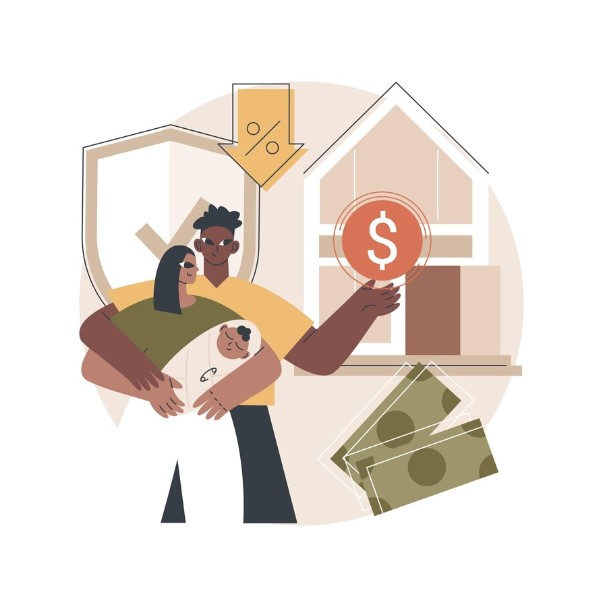Receiving a legal notice from your bank can be a daunting experience. It’s a formal communication, often delivered via an advocate, indicating that you’ve defaulted on your EMI payments and the bank intends to take further action. While a single legal notice is a standard part of the debt recovery process, what if your bank starts sending them repeatedly, sometimes even after you’ve tried to communicate or are working towards a resolution? This can feel like a form of bank harassment, adding immense stress to an already difficult financial situation.
At Bank Harassment, we understand the fear and uncertainty that comes with repeated legal notices. Our aim is to provide you with a clear roadmap, offering guidance and an anti-harassment service to help you navigate this challenging period and protect your rights, whether you’re considering loan settlement or other debt resolution options.
Why Banks Send Legal Notices
Before diving into what to do, it’s important to understand why banks send legal notices:
- Formal Communication of Default: It’s a formal declaration that you have breached your loan agreement terms.
- Precursor to Legal Action: It serves as a warning that if the dues are not cleared within a stipulated timeframe (often 15-60 days, depending on the type of loan and notice), the bank may initiate civil or even criminal proceedings (e.g., under Section 138 of the Negotiable Instruments Act for bounced cheques).
- Compliance with Regulations: Banks are often required to issue such notices before escalating recovery efforts, especially for secured loans under the SARFAESI Act, 2002.
- Documentation: It creates a legal record of the bank’s efforts to recover the debt.
When Repeated Notices Cross the Line into Bank Harassment
While banks have a right to send legal notices, a pattern of excessive or misleading notices can indeed be considered bank harassment:
- Notices After Payment/Resolution Attempt: If you’ve already made a payment, responded to a previous notice, or are actively discussing a loan settlement, and yet receive new, identical notices, it can be seen as undue pressure and harassment.
- Incorrect Information: Notices containing incorrect outstanding amounts, wrong dates, or threats not applicable to your loan (e.g., imprisonment for an unsecured loan default, which is typically a civil matter) can be harassing.
- Unnecessary Escalation: Sending a barrage of different types of notices (e.g., a simple demand notice followed immediately by a highly aggressive recall notice, without sufficient time to respond) can be intimidating.
- Combined with Agent Harassment: When repeated legal notices are accompanied by aggressive calls, abusive language from recovery agents, or visits to your home/workplace, it clearly indicates severe bank harassment.
What to Do If Your Bank Sends Legal Notices Repeatedly:
- Do Not Ignore Them: This is paramount. Ignoring legal notices can have serious consequences, as the bank can proceed with legal action ex-parte (without your presence).
- Document Everything:
- Keep all notices: Create a dedicated folder for every legal notice, noting the date received.
- Record communications: If you’ve responded to previous notices, keep copies of your responses. If you’ve spoken to the bank or agents, log the date, time, person spoken to, and the essence of the conversation.
- Understand Each Notice: Read each legal notice carefully.
- What is the specific demand?
- What section of law is cited?
- What is the deadline for your response or payment?
- Is the amount claimed accurate?
- Seek Professional Legal Advice Immediately:
- This is the most crucial step. A lawyer specializing in banking and debt recovery can analyze each notice, advise you on its implications, and help you draft a suitable response.
- They can identify if the notices constitute bank harassment and guide you on filing appropriate counter-complaints.
- Draft a Consolidated Response (with legal help): Instead of responding to every repeated notice individually, a lawyer can help you draft a single, comprehensive response that addresses the pattern of notices, reiterates your stance (e.g., acknowledging the debt, explaining hardship, proposing a solution like loan settlement), and explicitly warns against further bank harassment.
- Explore Debt Resolution Options (including Loan Settlement): Repeated notices often signal that the bank is willing to consider alternative solutions. If you are genuinely unable to pay the full EMI, consider approaching the bank for a loan settlement. This involves negotiating to pay a lower lump sum or a restructured plan to clear the debt.
- Leverage Anti-Harassment Services: If the repeated notices feel like a form of intimidation, engage an anti-harassment service. They can send a formal legal notice to the bank, citing the repeated and potentially harassing nature of the communications, and escalating the matter to regulatory bodies if necessary.
How Bank Harassment Can Help
At Bank Harassment, our expertise lies in both navigating the complexities of debt recovery and protecting you from bank harassment. Our services include:
- Legal Notice Analysis: We help you understand the implications of each legal notice.
- Strategic Response Drafting: We assist in drafting professional and legally sound responses to bank notices.
- Anti-Harassment Intervention: If repeated notices cross into harassment, we can act on your behalf to stop it.
- Guidance on Loan Settlement: We can provide guidance on exploring loan settlement or other debt resolution options, addressing the root cause of the notices and providing a clear path to financial freedom.
Don’t let repeated legal notices overwhelm you. Take proactive steps, seek professional guidance, and safeguard your rights. Contact Us at Bank Harassment today for a confidential consultation.



